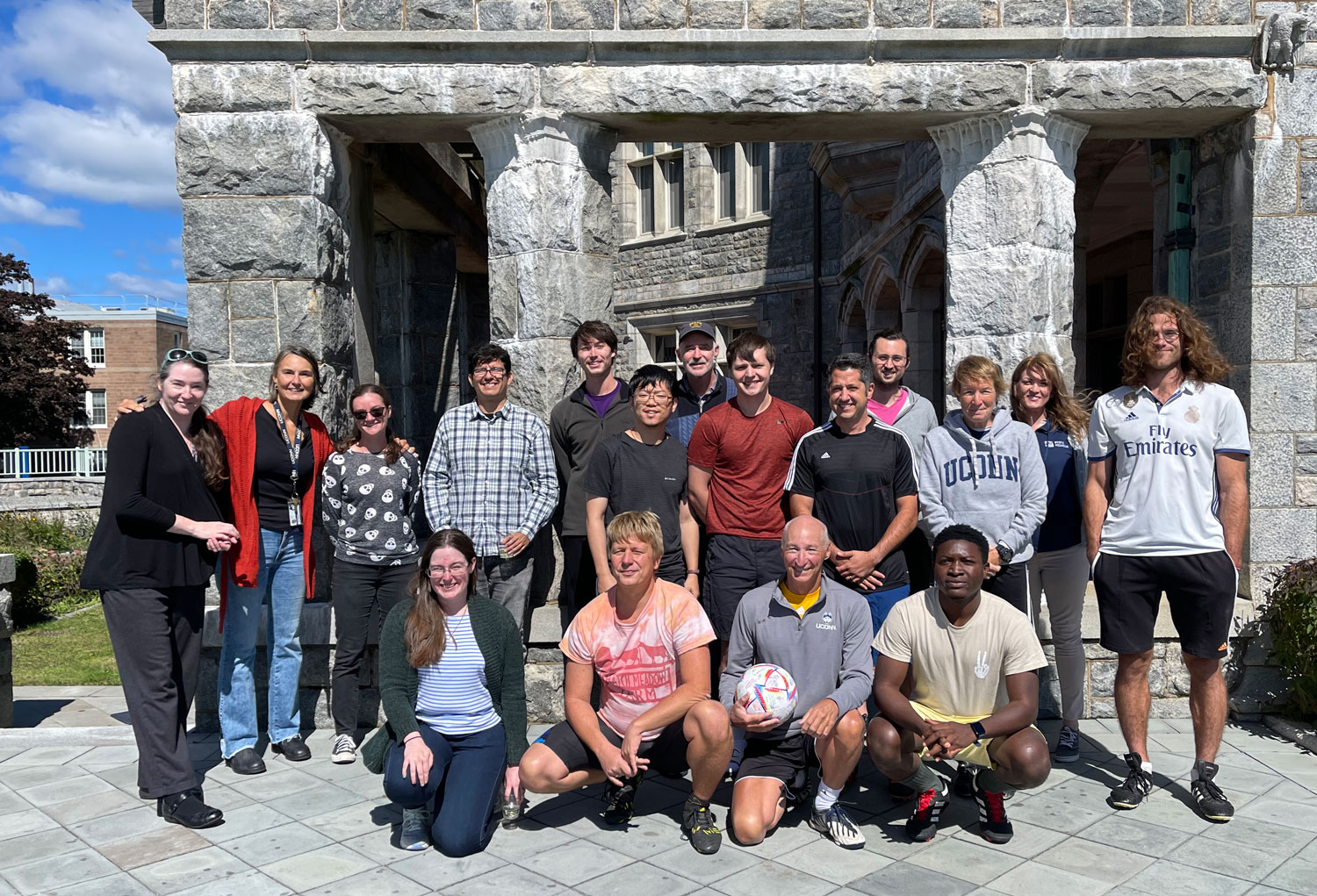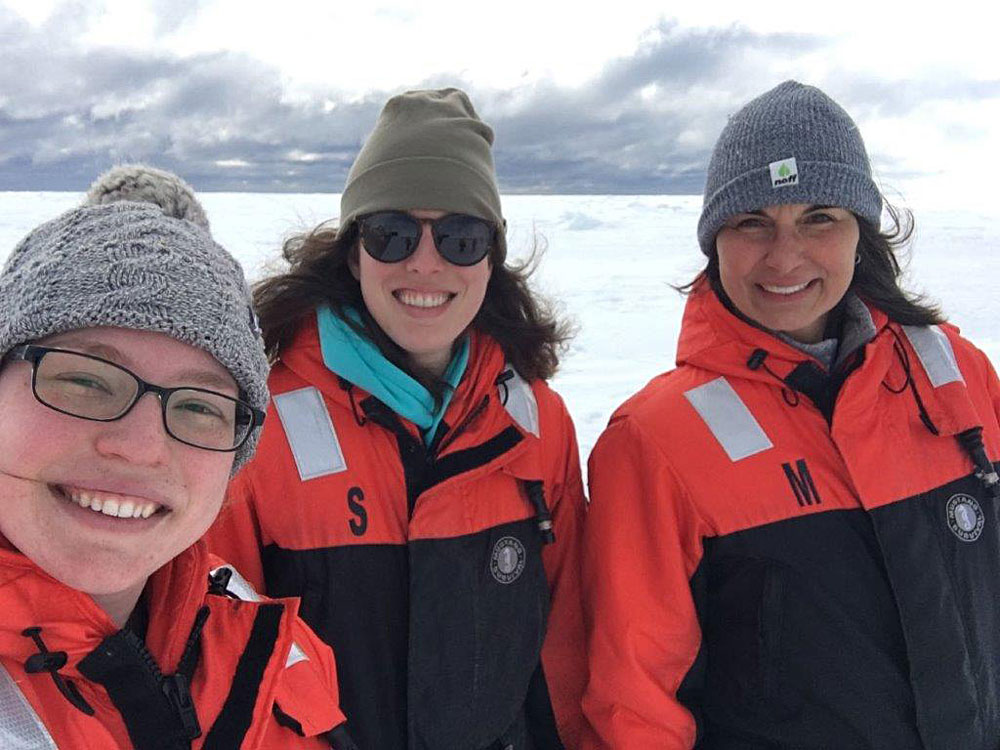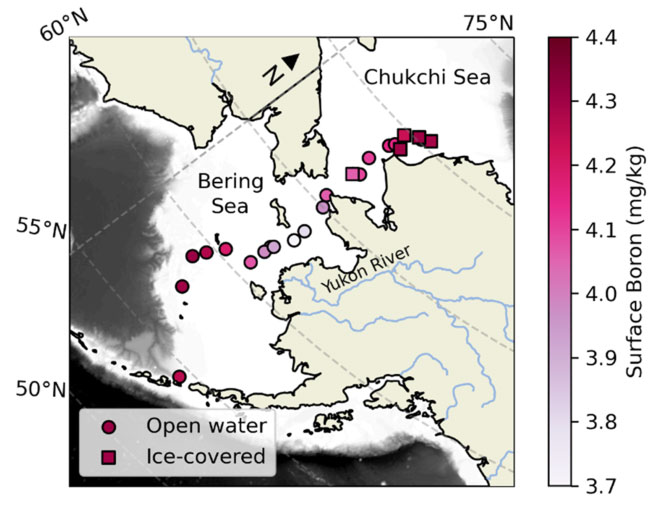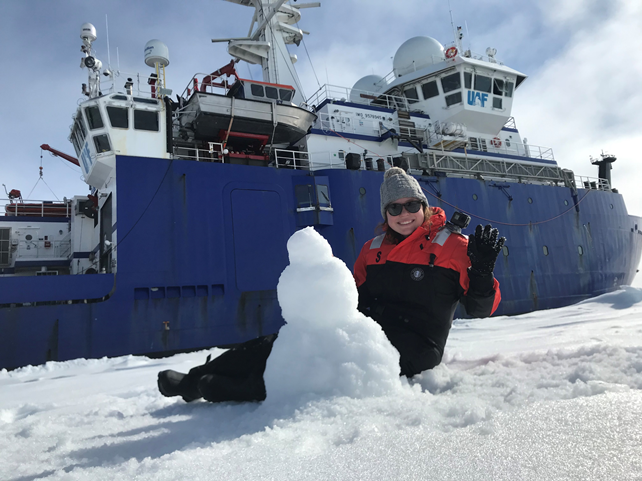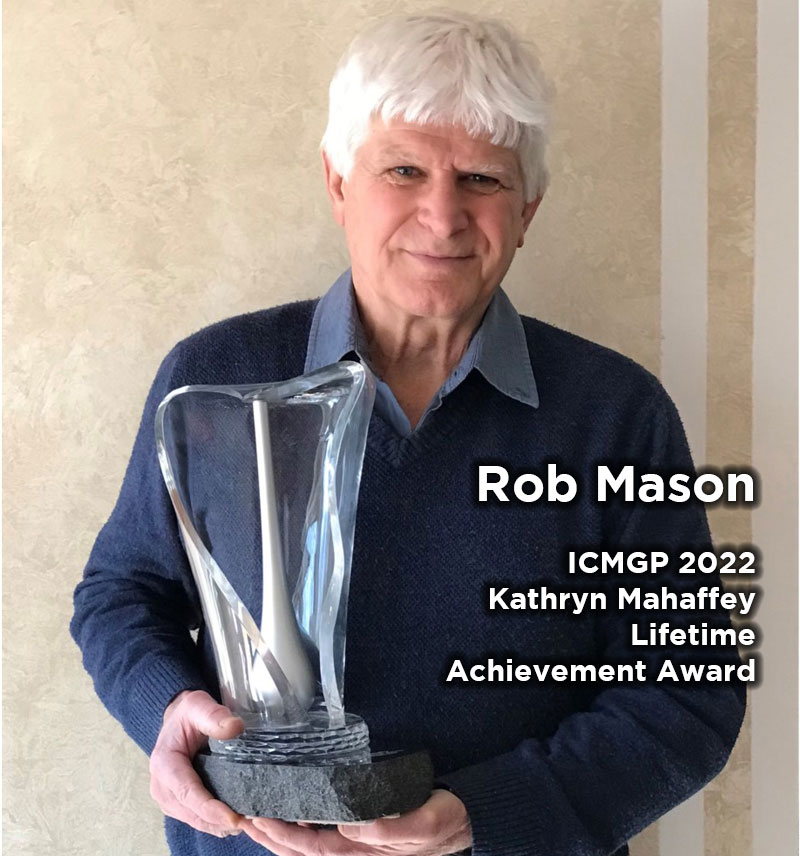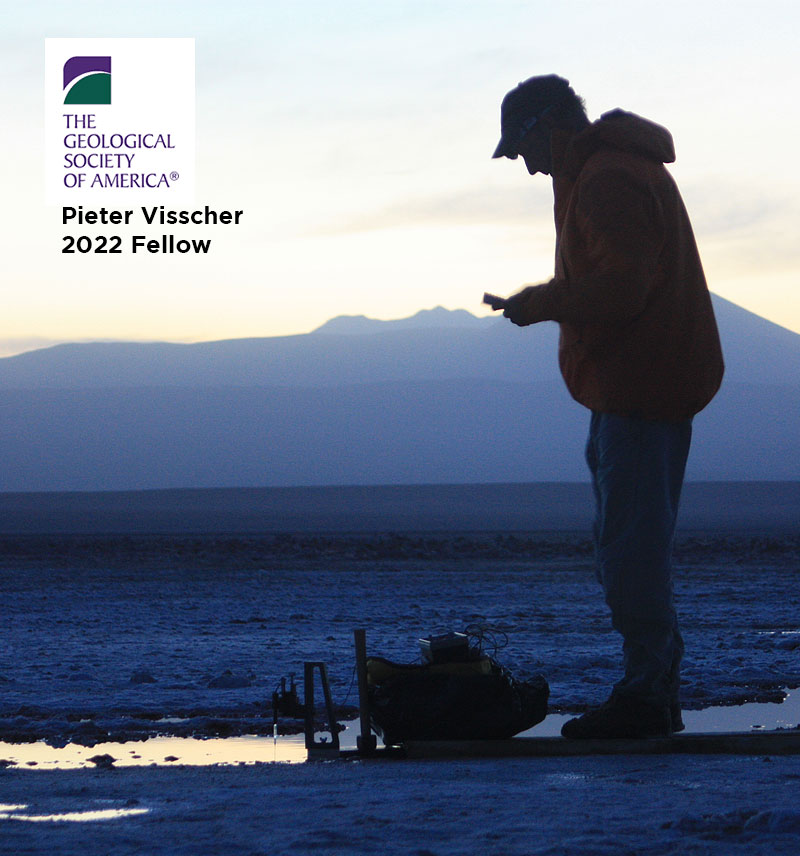His mentoring activities have resulted in 13 PhD and 8 MS theses, where he has been the major advisor, and he has been a committee member for many other graduate students. Eighty percent of his graduate students have been women and, besides the USA, his students have come from Africa and Asia. He has been an external examiner for PhD students in Canada, Europe and South Africa. He has also mentored more than 10 post-docs and visiting scientists from around the world, including Fulbright Scholars and students/post-docs from Europe and Asia. He has also had many high school and undergraduate students working in his laboratories over the years. He has taught classes throughout his career, and has always incorporated his research into his teaching. He expects to continue to teach classes in Chemical Oceanography, Trace Metals and Isotopes and Environmental Chemistry in the future.
He has collaborated extensively with scientists from around the world and has been involved in synthesis and other activities through national and international organizations including the United Nations Environmental Program (UNEP), and other UN organizations, and their partnership programs, the Arctic Monitoring and Assessment Program (AMAP), and the Hemispheric Transport of Air Pollutants (HTAP) initiative. He has been actively involved in communicating science to policy makers both in the USA and globally. He has been involved in many activities as a science advisor to federal, state and local organizations and industry related to contaminated sites and/or the impacts of human activities on local waters and biota, and subsequently humans and wildlife, and in their remediation.
Rob’s research has been funded by numerous federal and state agencies, as well as from non-governmental organizations, with the majority of his funding from the NSF (30 grants). He has been part of long-term studies, such as the METAALICUS Project, the GEOTRACES Program and studies on mercury in coastal environments in collaboration with colleagues at Dartmouth College. He has collaborated extensively with scientists in America, Europe, Asia and Africa. His research has taken him to the far corners of the Earth, including remote regions of the Arctic, Pacific and Atlantic Oceans. He has participated in 9 open ocean cruises during his career, and been chief scientist on more than one occasion, and has been involved in many coastal cruises and terrestrial studies. He has conducted research in Southern Africa and was also a Fulbright Scholar doing studies in West Africa related to artisanal gold mining (ASGM) impacts on the environment.
Rob recently participated in a research cruise in the Arctic Ocean and his post-doc was involved in another cruise around Iceland in 2021. He expects to continue his open ocean studies going forward, and hopes to remain involved in the GEOTRACES program. He is continuing with studies of Hg interactions in coastal waters, and the relationship between Hg cycling and transformation and those of other elements, such as selenium. He is currently the major advisor/co-advisor of 5 PhD students and is actively involved in their research, and is also actively writing papers based on prior studies. There are many papers still to be written and he is also currently involved in synthesis efforts as part of the current AMAP mercury synthesis. He expects to remain active in research, teaching, consulting and related activities for several years as there are too many good ideas to pursue to stop right now!
On the behalf of the mercury scientific community, the Scientific Steering Committee of the 15th International Conference on Mercury as a Global Pollutant, cordially congratulate Professor Mason for receiving the LAA Award.
